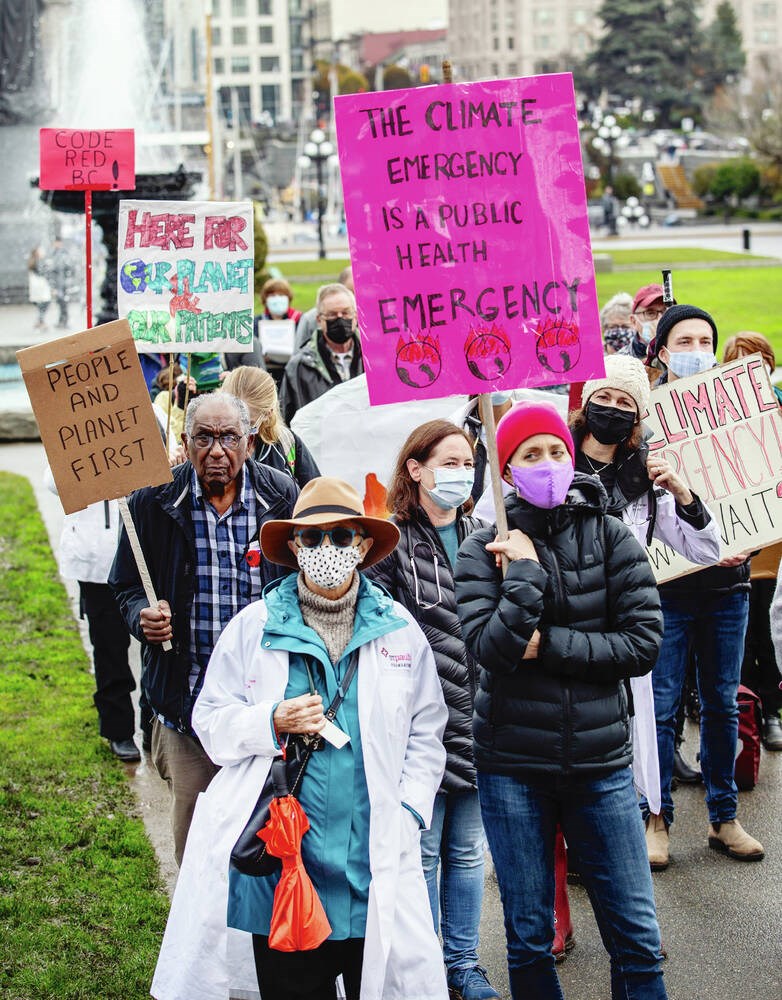In 1848, Dr. Rudolf Virchow presented his report to the Prussian government on the steps needed to address a typhus outbreak in Upper Silesia — an impoverished, largely Polish-speaking coal-mining area.
To the surprise and consternation of the government, he called for a variety of social and economic reforms, including democratic self-government, making Polish an official language, separation of church and state, and the creation of grassroots agricultural co-operatives.
“But Dr Virchow,” they said, “this is not a medical report, it’s a political report!” To which he famously replied: “Gentlemen, medicine is a social science, and politics nothing else but medicine writ large.”
His statement has been an inspirational force for public-health action ever since, providing the rationale for the focus public health so often has on the hugely important health impacts of public policy beyond the health sector.
173 years later, Virchow’s spirit is alive and well and was on display at the B.C. legislature on Nov. 4. Doctors for Planetary Health-West Coast brought together some 100 doctors, nurses and other health professionals for a rally at the B.C. legislature, timed to coincide with the COP26 meeting in Glasgow. (Full disclosure: I was a member of the organizing group, helped formulate the set of demands presented at the rally and write the background document, and spoke at the rally.)
Inspired in part by the UN Secretary General, Antonio Guterres, who had called the latest Intergovernmental Panel on Climate Change report a “Code Red for humanity,” we were there to declare a climate and ecological Code Red for B.C., noting: “The climate and ecological crisis is a health crisis. We stand in solidarity for a safe and equitable future for all living creatures and the planet.”
We were also motivated by an unprecedented editorial published in September in more than 200 leading medical journals that stated bluntly: “The greatest threat to global public health is the continued failure of world leaders to keep the amount of global temperature rise below 1.5°C and to restore nature.”
As was the case for Virchow all those years before, the focus of the action agenda we want the B.C. government to undertake is rooted in the recognition that politics is nothing else but health and well-being on a large scale.
So in addition to asking the government to declare a climate and ecological emergency, we called for an emergency plan leading to transformative change that would improve the health and wellbeing of the people of B.C. — and the world beyond.
On the climate-change front, we called not only for an end to fossil-fuel supports but the phasing out of fossil-fuel production and exports. In addition, we called for an assessment of the health impacts of all energy use in B.C. and investment in a regenerative zero-emissions economy.
Recognizing, as does the UN, that we also face both biodiversity loss and pollution crises, we called for the protection and restoration of nature. In particular, this means protecting natural ecosystems such as old-growth forests, enacting a Species at Risk Act and recognizing the human right to a healthy environment, as well as the rights of nature.
Even more broadly, we called on the B.C. government to put human well-being in balance with nature at the heart of decision-making. This includes replacing the GDP as a measure of progress with an alternative such as the Genuine Progress Indicator and creating a Well-being budget, enacting a Well-being of Future Generations Act and establishing the role of a Commissioner for Future Generations. These are all steps that similar-sized jurisdictions such as Aotearoa New Zealand and Wales have taken.
Finally, recognizing that we must protect and improve the health of the most disadvantaged and least-healthy groups in society, as well as those who will be most affected by the shift to a more healthy and sustainable society, we called for a Just Transition.
It is important, we emphasized, that any action on these ecological crises be undertaken in conjunction with B.C.’s First Nations and Indigenous people, with a particular focus on addressing social and ecological injustice in B.C. and around the world.
I like to think Rudolf Virchow would have been proud of us.
Dr. Trevor Hancock is a retired professor and senior scholar at the University of Victoria’s School of Public Health and Social Policy.
- - -
To comment on this article, email a letter to the editor: [email protected]



